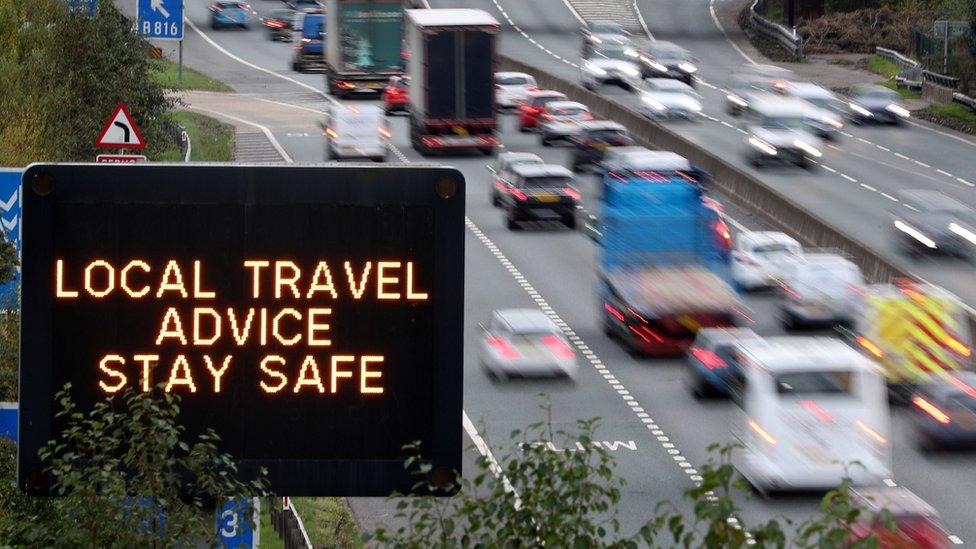Covid in Scotland: New restrictions will have 'damaging impact'
- Published
- comments
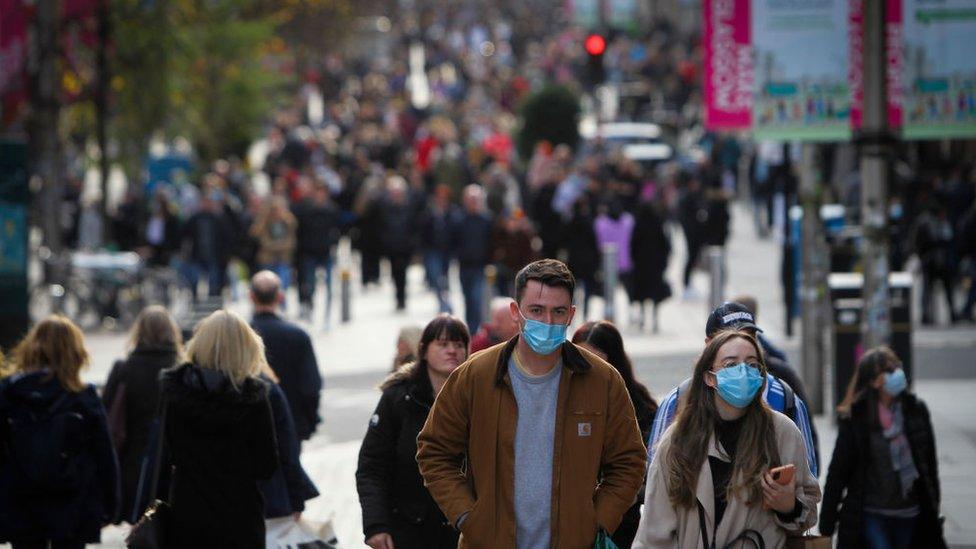
City leaders in Glasgow and Aberdeen have sounded warnings about the "damaging impact" of the latest Covid curbs on jobs and businesses.
It came after Nicola Sturgeon confirmed a new five-level system of restrictions for Scotland's 32 local authorities.
Concerns have been raised that travel limits in Glasgow - a level three zone - could hit Christmas shopping trade.
In Aberdeen, the council leaders are among those urging ministers to place the city in level one, rather than two.
In a televised address on Thursday, the first minster said there were "grounds for cautious hope" but the restrictions were necessary - and could get tougher.
Christmas shopping fears
Business leaders in Glasgow are concerned that travel restrictions could hit retailers relying on trade from an influx of Christmas shoppers.
The city normally attracts shoppers from across Scotland but new guidelines say people who do not live in the city should not travel there unless it is essential.
People are being urged not to travel into or out of council areas where there are level three restrictions.
Glasgow Chamber of Commerce chief executive Stuart Patrick said: "Have they considered the damaging impact this will have on Glasgow city centre retail businesses as Christmas season approaches, and we have no festive shoppers allowed from any other Tier 3 area - when that effectively means the whole of the Glasgow city region?"
He also called for the Scottish government to outline what support will be offered to businesses to limit job losses.

Which level are you in?
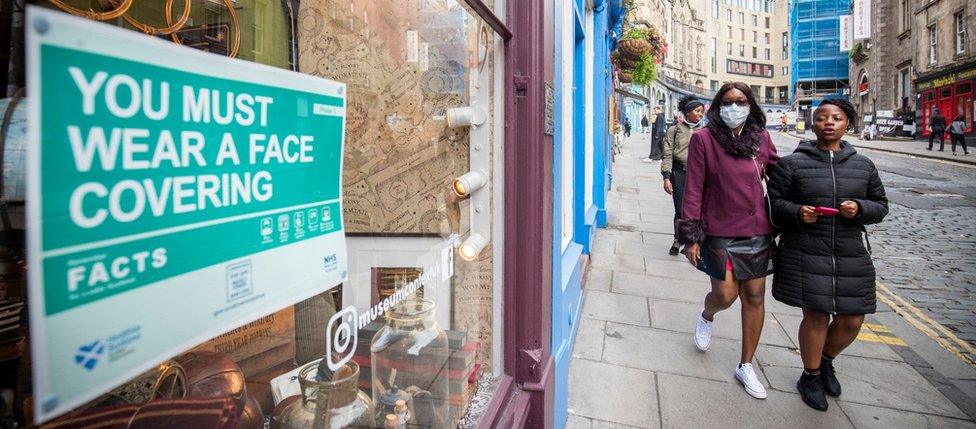
Level 3 - Glasgow City, Renfrewshire, East Renfrewshire, East Dunbartonshire, West Dunbartonshire, East Ayrshire, North Ayrshire, South Ayrshire, South Lanarkshire, North Lanarkshire, Inverclyde, City of Edinburgh, Midlothian, East Lothian, West Lothian, Clackmannanshire, Falkirk, Stirling, Dundee.
Level 2 - Aberdeen, Aberdeenshire, Angus, Argyll & Bute, Borders, Dumfries & Galloway, Fife, Perth & Kinross.
Level 1 - Highland, Moray, Orkney, Shetland, Western Isles.

The Federation of Small Businesses Scotland added that ministers must act with "a scalpel not a hammer", and highlighted that many rural firms also depend on visitors from the city.
"Sufficient financial support" is a must, the FSB Scotland said, for firms facing hardship.
David Lonsdale, director of the Scottish Retail Consortium, said retail would only survive if the public were able to shop.
He said closing non-essential shops - which would happen if an area was placed into level four - "must only be an absolute last resort".
The concerns were raised as Scotland's shop vacancy rate spiked to its highest level in five years, with one in every seven retail premises now standing empty.
Economic harm in Aberdeen
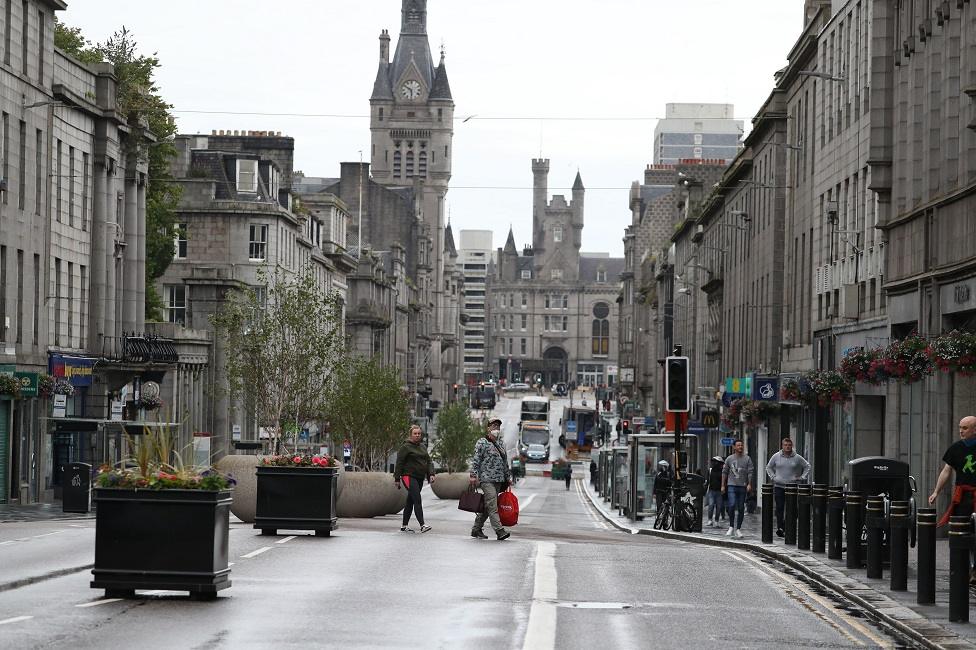
Meanwhile in Aberdeen, the council and business leaders have written to the first minister urging her to place Aberdeen in level one "at the nearest possible review point".
They say economic harm should be seen as a "significant factor" when making decisions about the levels a region is placed into.
And they claim the local summer lockdown badly affected the city, where unemployment has more than doubled between March and September, as has the number of people receiving benefits.
In a tweeted response to the letter,, external the first minister said the desire for speedier progress was "understandable but these decisions have been taken carefully".
"We are at a crucial moment and it will take work in coming weeks to maintain progress and not have to return to the stricter restrictions many other countries are facing. Compliance is vital."
On Thursday night the first minister urged Scots to "stick together" to avoid full lockdown
Deputy First Minister John Swinney told BBC Radio's Good Morning Scotland programme the Scottish government would consider any changes to the levels that had been allocated.
He said: "The levels framework acknowledges that in different parts of the country, the virus presents itself to a greater or lesser extent and we're trying to reflect that to enable people to get on with some proportion of normal life given the extent of the virus within their community."
He said Scotland could "potentially" be on the verge of a national lockdown and compliance with the guidance was vital if it was to be avoided.
"You only need to look at France where President Macron has applied a five-week national lockdown because of the severity of the rise in cases," he said. "We're about four weeks behind them.
"We hope that because of the early action we have taken we are able to stem the increases in the virus that have taken hold in France, for example, and we can avoid a national lockdown.
"But I can't say that that is ruled out because if people don't follow the guidance, if we don't have compliance with the restrictions we have put in place, then there is the possibility that we have to move to a national lockdown."
'Element of judgement'
He said progress was being made, but not in every part of the country.
"That's why the tiered framework is important," he said. "But there's always going to be an element of judgement where we need to look at whether or not the rate of progress is sustained over a long enough period of time."
Speaking about the travel restrictions, he said: "We are trying to say to people 'err on the side of caution and stay within your local authority area' because people moving round the country creates the bridges and the possibilities of the spread of the virus.
"We're trying to minimise the amount of movement within society that is unnecessary which gives us the best possible chances of reducing the spread of the virus from individual to individual."


- Published10 November 2020
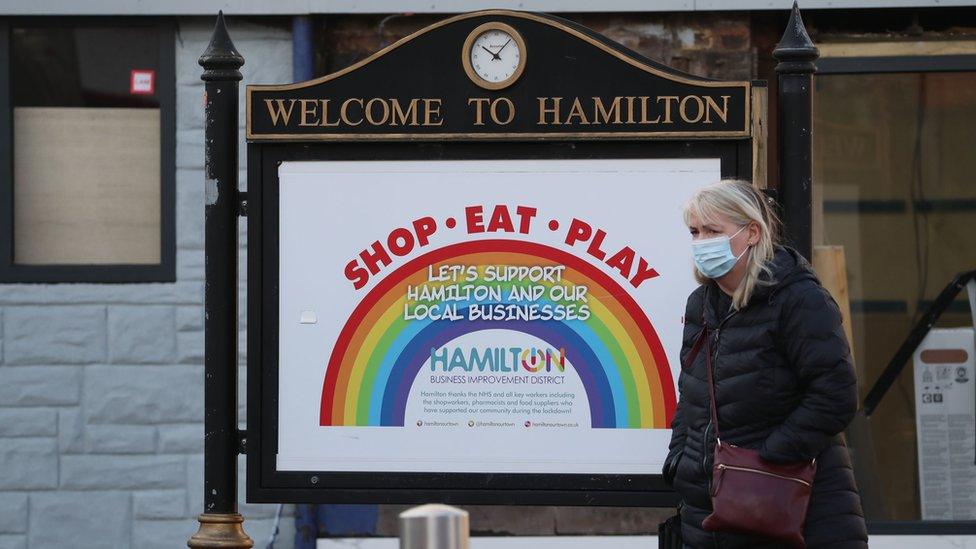
- Published29 October 2020
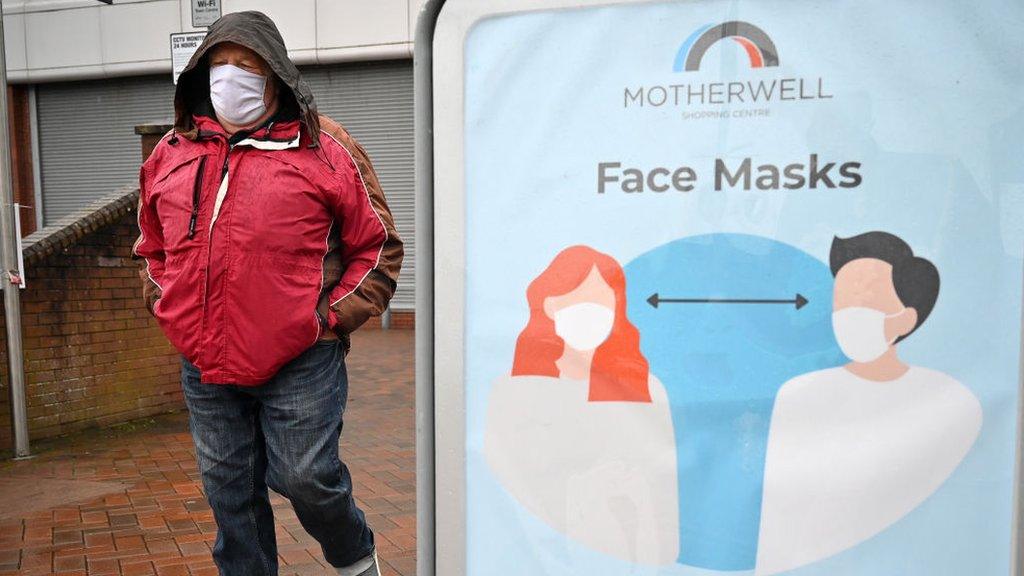
- Published29 October 2020
